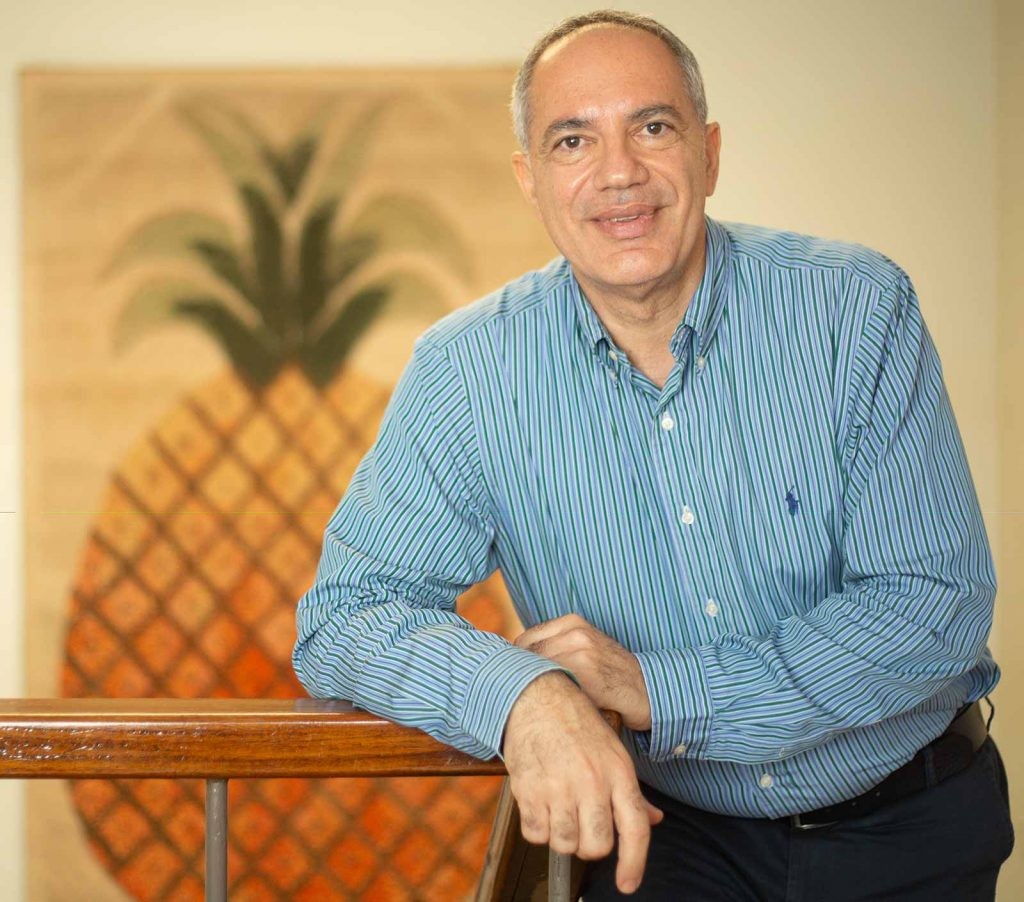
Back in the mid-2020s when Tavonga Muchuchuti was studying finance at university, it took two weeks to manually value over-the-counter derivatives under IFRS 9. Now, thanks to technological advances, the calculation can be done in seconds.
These days, Muchuchuti is championing the application of digital technology to accounting and finance as managing director of software development agency Xavier Africa. As artificial intelligence, big data, robotics and super-fast connectivity continue to transform the profession globally, he joined accountants and finance professionals at ACCA’s Africa Members Convention in December to raise awareness of the opportunities.
At the event, held online under the title ‘Repositioning the Profession in Africa’, ACCA global deputy president Joseph Owolabi FCCA pointed out that the Fourth Industrial Revolution has the ‘ability to change the face of our profession’.
Digital for all
Owolabi and Muchuchuti were speakers in a lively session on digital transformation. Owolabi noted that while African countries did not participate in or benefit from earlier industrial revolutions they are suffering the climate change consequences. ‘Today, however, the democratic nature of digital technology offers Africa a huge opportunity to drive that change and on a level playing ground with the rest of the world,’ he added.
Stewart Muchuchuti, a senior lecturer at Botswana Accountancy College and AI and machine learning engineer, agreed. ‘This time around, we have nobody to blame. The profession is evolving with each revolution coming through, but this profession has been evolving with the changes.’
Owolabi added: ‘The reality now is that anyone with a phone or laptop can carry the world in their hands and business in their pocket. I believe that our young generation of accountants – digitally savvy and well-connected people – can drive Africa to new heights of prosperity while tackling chronic inequalities.’
Disparities remain, however, including in connectivity and digital access. ‘We’re still facing those challenges, which need to be addressed at a government level,’ said Robert Busuulwa, managing partner at Mazars Uganda. ‘It is not enough for you and me to be digitally enabled. We need to ensure that society as a whole is digitally enabled.’
‘It’s only a matter of time until some smart kid somewhere in Silicon Valley figures something out and your job has gone’
Live above the API
Tavonga Muchuchuti, himself a representative of this young generation, provides an example of what can be achieved when individuals are enabled. Straddling the worlds of finance and technology, he has a perspective on both. Initially, he worked in finance but switched to computing, and now specialises in digital transformation.
‘A lot of my accountant friends have told me, “That stuff you guys are doing around AI, around robotics, automation, can never replace me. It can never replace the traditional roles that need human intuition, that require conceptualisation and thinking.” They are shocked when I introduce them to an application that automates the financial advisory function.’
Using algorithms and natural language processing, Xavier Africa’s application replaces a crucial function that has been vital to business for a long period. Likewise, it was able to replicate tax functions.
The Xavier Africa managing director stressed the key nature of the application programming interface (API) – the connection between computers. He told the conference: ‘You want to find yourself above the API and not below it, because above the API means you’re able to control outputs, you’re able to control where the world is going.
‘Being below the API, on the other hand, means you are simply being given instructions on what to do by the machine. It means that if your industry hasn’t accepted it yet, it’s only a matter of time until some smart kid somewhere in Silicon Valley figures something out and your job has gone.’
He went on to argue that accounting professionals must ‘refuse to be on the bench of our profession; rather we must ensure we take the initiative to live above the API’. He also pointed out that they need to gain the skills required to influence their profession and the direction in which it heads.
Change of focus
Edwin Makori, CEO at the Institute of Certified Public Accountants of Kenya, agreed. His speech to the conference was a call to digital arms. He declared: ‘The biggest challenge we have as a profession is that to a large extent we have not been involved in the development of these technologies. Therefore, it is critical and a matter of urgency to ensure that we have a footprint in these technologies that are coming up.’
Makori added that this technological shift will require a corresponding change of focus. Employees will need to adopt a critical-thinking mindset and ‘accept that we can receive information in such a way that we will become more strategic advisers than doers, as we have been for a long time as official accountants’.
He also stressed that finance professionals must take more of a leadership role, ‘analysing particular information and providing the necessary insights to be able to advise on what the information means and how that data will impact the organisation’.
Participants in the debate pointed out that this change in approach will require a shift in how trainees develop their skills and knowledge. ‘When you look at issues such as change or innovation, it requires a different mindset, and a different way of looking at the environment in which we are working. We need to ask, “Is it still relevant?”,’ said Busuulwa. He emphasised the importance of acquiring skills such as critical thinking, emotional intelligence and digital intelligence.
Busuulwa also argued for a back-to-basics approach and a questioning of what finance professionals do. ‘Machines are going to do things, but machines are not taking over all our world. We are still going to be relevant. But we need to think about the essence of accounting and the essence of an audit.’


